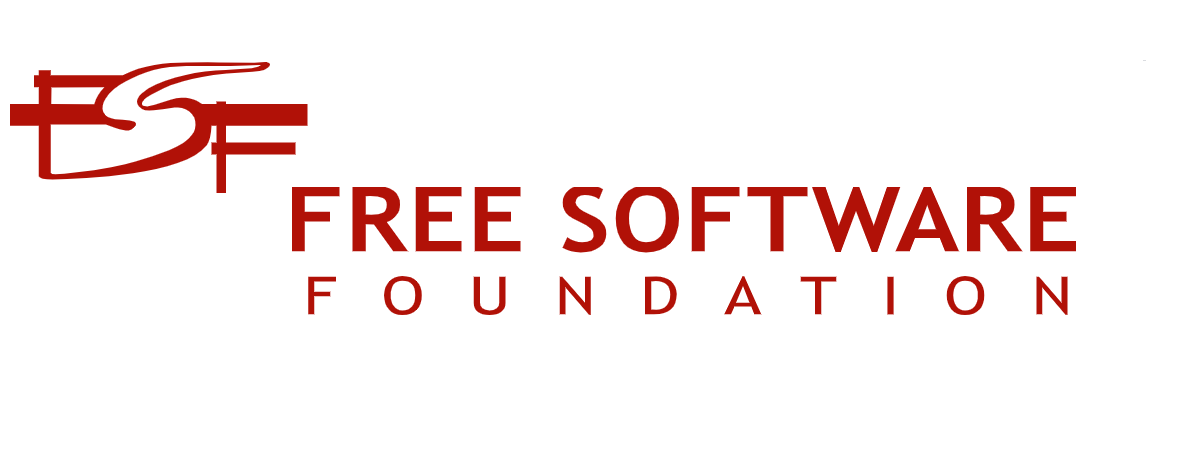
FSF logo
A few days ago the Free Software Foundation published a blog post in which the organization thanks all those who use the GNU licenses to distribute and license software, "but" condemns the use of unauthorized and confusing derivatives of these licenses.
In its article, the Free Software Foundation explains how users are protected against restrictive terms introduced by people who use the terms of the GNU license to write their own new licenses, in a way that perpetuates users from exercising the freedoms of free software.
Although open source software components are, by definition, available to everyone, some copyright holders do not want a product, often created for charity, to be used and sold uncontrollably. Therefore, they prohibit the use of open source in proprietary software and even require that a product created from open source be released into the public domain. However, this does not mean that open source solutions cannot be used for commercial purposes.
There are, for example, paid versions of Linux, whose owners make money by selling distribution licenses and customer support. Acceptable scenarios for using the software, determined by the copyright holder, are described in the license.
In these scenarios everything could seem "good" and "correct" to some extent and as such the licenses include the explicit grant of rights, clear and complete obligations to provide source code and copyleft clauses that guarantee the protection of freedoms in derivative works. .
For more than thirty years, GPLs have been at the center of the free software movement. And every time a recipient of GPL-licensed software sees the license, he knows that he has all the essential freedoms in a clear and unambiguous manner.
Open source licenses can be divided into two categories, which are the permissive and copyleft:
- On the permissive license side, these allow the source code to be used in any project, including proprietary ones, and among the most popular are: Apache License 2.0, BSD 2-Clause “Simplified”, BSD 3-Clause “New” and the MIT license
- Regarding copyleft, the Free Software Foundation divides this license into two categories: "copyleft Strong" and "copyleft Weak." A Strong copyleft does not imply conditions under which the derived software can be distributed under any license other than that used in the source code. Copyleft Weak, on the other hand, provides for such conditions.
Well, although this is what the "theory" says, in practice not everything is smooth sailing, since the Large projects often use several open source components at the same time. And before sending them to production, you need to make sure that programs or parts thereof, released under different licenses, can be combined within the framework of a single product.
As such, everything is simple with permissive licenses, since most are compatible with each other, with other free and even proprietary licenses. The source code fragments will remain under their own licenses and the new project may exist under any other. Copyleft licenses, on the other hand, are not only incompatible with permissive and proprietary licenses, but may even be incompatible with each other. For example, GPLv2 is incompatible with GPLv3.
This is where the Free Software Foundation article has "its why" since it mentions that some authors "engage in confusing practices" when writing licenses that use the existing terms and conditions of the GNU Free Software Licenses, without the intention of granting the four freedoms to users.
For example, we have long seen attempts to add restrictions to the license text itself, placed in the LICENSE file or included elsewhere in the program version. This is the case of the so-called "commons" which, when applied to a free software license, affirms that the program is covered by the license. But, at the same time, it is contradictory in its meaning by stating that the sale of copies of the program or the implementation of a commercial service with the program is prohibited.
Given this scenario of "inserting restrictions in a GNU license" The Free Software Foundation was already aware of misleading and confusing licensing practices that subverted the intent of the GNU GPLv2 by adding terms prohibiting certain uses. Intended to allow users to remove any restrictions additional information that may have been added to the license, the FSF included “section 7” of GNU GPLv3 and AGPLv3, entitled "Additional Terms".
Here we were particularly concerned about the problem of program authors seeking to license their works in a misleading and perhaps contradictory manner, using the GPL with unacceptable additional restrictions that would make those works non-free software.
To make it even clearer that the added restrictions are incompatible with the GNU license, the Free Software Foundation has given users the right to remove these added restrictions and preserve the freedom of the program. But the FSF has another legal tool to counter attempts to distribute programs under the GNU General Public License that have been mistakenly modified to become non-free licenses.
The FSF ends its article by mentioning that it has always allowed everyone to use its licenses according to their purpose, which is to grant and protect the freedom of users to run, copy, distribute, study, modify and improve the software.
Proprietary software is unethical and moral according to the FSF and is working hard to build a future that contains less and less.
If you are interested in learning more about it, you can check the details In the following link.